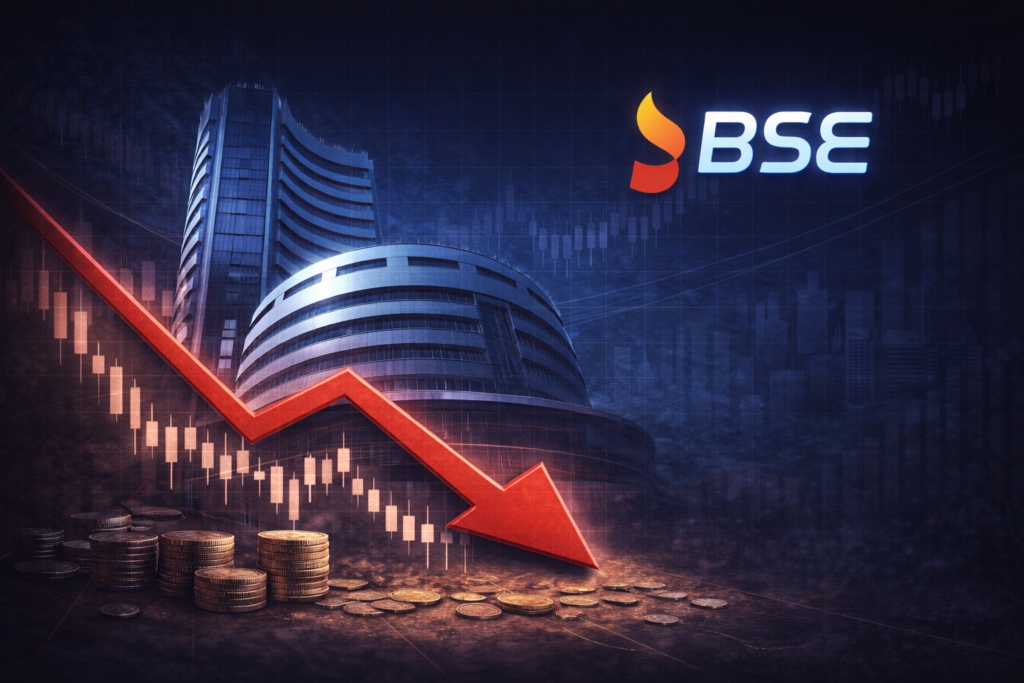Quick Summary:
- High-volume penny stocks are bargain-priced shares that have substantial volume activity, and they can provide fast access to profits but can also incur massive volatility.
- Investors get caught up in investing in these stocks due to the potential for rapid price movement and quick profits, but there are risks associated with investing in penny stocks, including market manipulation.
- To invest wisely, look at the liquidity of the stock, the company’s financial health and market confidence, past performance, and regulatory compliance.
- Your success at trading will depend on the trading platform you select, the accounts you open, the penny stocks you select to invest in, and executing your trades at the right time.
- Risks may include extreme volatility, unreliable quality or quantity of information, market manipulation and liquidity, and poor financial performance.
Looking to make big gains from high-volume penny stocks? While these stocks are often priced low, they carry the potential for rapid price movements that can result in quick profits. The key to capitalising on them lies in identifying the right stocks before the crowd does.
In this blog, we’ll highlight some of India’s top high-volume penny stocks right now. We’ll also break down what makes these stocks stand out and strategies to help you navigate this volatile market. Keep reading!
Introduction to High-Volume Penny Stocks
High-volume penny stocks are shares of small companies that trade at low prices, generally below Rs.20. These stocks have significant trading activity, meaning many shares are bought and sold. The high volume can create opportunities for sharp price changes, which makes them appealing to traders looking for quick returns.
Investors are often drawn to high-volume penny stocks because of the potential for rapid price movements. These stocks can experience significant swings, which, when timed correctly, may lead to quick gains. The high volume indicates strong investor interest, which can lead to increased market activity and price volatility, creating profit opportunities.
List of the best High-Volume Penny Stocks
Here’s a table summarising the high-volume penny stocks in India:
| Company Name | 1Y Return (%) | 3Y Return (%) | 5Y Return (%) |
| Abhinav Leasing & Finance Ltd. | -27.30% | -47.03% | -73.73% |
| Advik Capital Ltd. | 6.46% | -23.68% | 68.34% |
| Debock Industries Ltd. | -68.65% | -94.66% | 95.84% |
| Family Care Hospitals Ltd. | -25.16% | -56.65% | -31.03% |
| Franklin Industries Ltd. | 117.59% | 616.69% | 672.70% |
| Galactico Corporate Services Ltd. | -24.89% | 4.62% | 238.00% |
| Goyal Associates Ltd. | -15.90% | -62.64% | -7.34% |
| Pressure Sensitive Systems (India) Ltd. | -47.22% | -60.63% | 60.63% |
| Reliance Home Finance Ltd. | 38.33% | -4.60% | -50.91% |
| Seacoast Shipping Services Ltd. | 14.87% | -74.91% | 274.41% |
Understanding High-Volume Stocks and Their Importance
High-volume stocks experience a large number of trades within a specific period. This means that many investors are buying and selling the stock, increasing market activity.
When a stock has a high volume, it often means increased demand or supply, which can lead to sharp price changes. For example, if a company releases positive earnings, investors may rush to buy the stock, pushing prices up. On the other hand, negative news may cause heavy selling, leading to a price drop.
Essentially, when a stock experiences a surge in volume, it signals strong investor interest, which could indicate a new price trend.
Factors to Consider Before Investing in High-Volume Penny Stocks
Not all high-volume penny stocks offer long-term gains. To find potential high-return stocks, consider factors such as:
Liquidity and Trading Volume
Higher trading volume makes buying or selling stocks easier without causing drastic price changes. Ensure the stock has a consistently high trading volume to avoid liquidity issues.
Financial Health of the Company
Analyse the company’s financials, including revenue growth, profit margins, and debt levels. A strong balance sheet reduces the risk of investing in unstable businesses.
Market Sentiment and News
Monitor market trends, industry developments, and news related to the stock. Positive or negative events can influence stock prices, so staying updated helps you make informed decisions.
Stock Volatility and Past Performance
Check the stock’s historical price movements and trading patterns. High volatility can offer profit opportunities but also increases risk, so assess your risk tolerance before investing.
Regulatory Compliance
Ensure that the stock complies with guidelines from regulatory bodies like SEBI (Securities and Exchange Board of India). This helps minimise fraud risks and ensures legal security.
List of Best High-Volume Penny Stocks in India
Here’s a list of some of the best high-volume penny stocks in India that have consistently shown strong activity and promise:
1. Abhinav Leasing & Finance Ltd.
Founded in 1984, Abhinav Leasing & Finance is a non-banking financial company (NBFC) that offers investments in stocks, bonds, and loans. Despite fluctuating returns, the company’s stock is actively traded due to its role in finance.
Know the Returns:
- 1Y Return: -27.30%
- 3Y Return: -47.03%
- 5Y Return: -73.73%
2. Advik Capital Ltd.
Established in 1985, Advik Capital is a non-banking financial company (NBFC) registered with the Reserve Bank of India. It offers lending services and trades stocks. The company is also involved in electrical goods manufacturing through its subsidiary, Advik Optoelectronics Ltd.
Know the Returns:
- 1Y Return: 6.46%
- 3Y Return: -23.68%
- 5Y Return: 68.34%
3. Debock Industries Ltd.
Founded in 2008, Debock Industries sells agricultural equipment and operates in the real estate sector. The company also owns hotels and undertakes housing projects. Despite recent struggles, Debock Industries has posted a significant long-term return, making it an interesting option for high-volume penny stock traders.
Know the Returns:
- 1Y Return: -68.65%
- 3Y Return: -94.66%
- 5Y Return: 95.84%
4. Family Care Hospitals Ltd.
Previously known as Scandent Imaging Limited, Family Care Hospitals Ltd. provides medical services, including dentistry and ENT imaging. Although its financial results have fluctuated, it continues to see strong trading volume, offering potential for high-return investments.
Know the Returns:
- 1Y Return: -25.16%
- 3Y Return: -56.65%
- 5Y Return: -31.03%
5. Franklin Industries Ltd.
Franklin Industries, formerly Murad Properties and Projects, deals in agricultural commodities. The company has posted impressive returns over the past few years, driven by its focus on modern farming techniques. It remains a popular high-volume penny stock for those looking for strong growth potential.
Know the Returns:
- 1Y Return: 117.59%
- 3Y Return: 616.69%
- 5Y Return: 672.70%
6. Galactico Corporate Services Ltd.
Founded in 2010, Galactico Corporate Services is a financial services provider offering corporate valuations, investment banking, and ESOP (Employee Stock Ownership Plan) management. The company operates in multiple industries, and its stock has garnered attention for its volatility and growth potential.
Know the Returns:
- 1Y Return: -24.89%
- 3Y Return: 4.62%
- 5Y Return: 238.00%
7. Goyal Associates Ltd.
Established in 1994, Goyal Associates provides financial services and microfinance products, including loans to micro-enterprises. Due to its role in the financial services industry, the company’s stock has attracted substantial trading volumes, making it a notable high-volume penny stock.
Know the Returns:
- 1Y Return: -15.90%
- 3Y Return: -62.64%
- 5Y Return: -7.34%
8. Pressure Sensitive Systems (India) Ltd.
Incorporated in 1987, Pressure Sensitive Systems manufactures adhesive tapes used in various industries, including insulation and reinforcement. The company’s consistent product range and significant export activities make it a high-volume stock in the industrial sector.
Know the Returns:
- 1Y Return: -47.22%
- 3Y Return: -60.63%
- 5Y Return: 60.63%
9. Reliance Home Finance Ltd.
Founded in 2008, Reliance Home Finance is a Reliance Capital division that offers home and construction loans. Although the company has faced liquidity issues, its stock remains a popular high-volume penny stock for traders, mainly due to its connection with the Reliance Group.
Know the Returns:
- 1Y Return: 38.33%
- 3Y Return: -4.60%
- 5Y Return: -50.91%
10. Seacoast Shipping Services Ltd.
Initially known as Mahaan Impex, Seacoast Shipping Services provides shipping and logistics services, primarily transporting commodities like coal and iron ore. Despite recent struggles, the company’s stock has posted impressive long-term returns, offering good liquidity for investors.
Know the Returns:
- 1Y Return: 14.87%
- 3Y Return: -74.91%
- 5Y Return: 274.41%
How to Trade High-Volume Penny Stocks in India?
High-volume penny stocks offer opportunities for quick profits, but they come with risks. To trade effectively, follow these steps:
- Choose a Reliable Trading Platform:
- Pick a SEBI-registered stockbroker with a user-friendly platform.
- Ensure the platform supports high-volume trading and offers real-time data.
- Open a Demat and Trading Account:
- A Demat account stores your stocks electronically, while a trading account is needed for transactions.
- Link your bank account for seamless fund transfers.
- Identify High-Volume Penny Stocks:
- Stock screeners are used to find high-volume trading stocks with consistent activity.
- Check the daily trading volume and historical price trends.
- Analyse the Stock’s Potential:
- Study financial reports, earnings growth, and industry trends.
- Look for positive market sentiment and upcoming catalysts (news, events, or results).
- Execute Trades Smartly
- Use limit orders to control the price at which you buy or sell.
- Avoid buying during sharp price spikes; instead, wait for a dip.
- Monitor and Exit at the Right Time
- Keep track of stock movements and set stop-loss orders to protect against sudden declines.
- Book profits when your target is reached instead of holding for unrealistic gains.
Risks and Challenges of Investing in High-Volume Penny Stocks
Investing in high-volume penny stocks can be profitable, but it comes with significant risks, such as:
Extreme Price Volatility
Penny stocks experience sharp price swings due to low market capitalisation (total value of shares) and speculative trading. Prices can spike or crash within hours, making it difficult to time trades accurately.
Lack of Reliable Information
Many high-volume penny stocks belong to small or emerging companies with limited financial transparency. Due to a lack of audited reports and earnings disclosures, assessing the true value of these stocks becomes challenging.
Market Manipulation (“Pump and Dump” Schemes)
Some traders artificially inflate stock prices by spreading false hype or misleading news. Once the stock gains attention and prices rise, these traders sell their shares, leaving unsuspecting investors with heavy losses when prices fall suddenly.
Liquidity Issues
While high volume suggests active trading, not all penny stocks are liquid (easy to buy or sell at stable prices). You may struggle to sell your shares quickly, especially if demand drops, leading to unexpected losses.
Regulatory Risks
Penny stocks often face scrutiny from regulatory bodies like SEBI (Securities and Exchange Board of India) due to concerns over fraud and manipulation. Sudden policy changes, trading restrictions, or delisting can unpredictably impact stock prices.
Weak Financial Stability
Many penny stock companies struggle with debt, cash flow issues, or poor earnings performance. These businesses may lack the resources to sustain operations, increasing the risk of bankruptcy and complete investment loss.
Emotional Trading Decisions
The excitement of high-volume trading stocks can lead to impulsive buying and selling. Investors often chase trends without proper research, increasing the chances of poor investment decisions and losses.
The Bottom Line
High-volume penny stocks offer opportunities for quick gains but come with high risks due to volatility, market manipulation, and lack of financial transparency. Before investing, analyse company fundamentals, market trends, and liquidity levels to avoid falling for speculative hype.
Moreover, strong risk management strategies, including stop-loss orders and diversification, can help protect your capital. To trade wisely, rely on credible sources for research, avoid impulsive decisions, and use a trusted trading platform regulated by SEBI.
Looking to diversify globally? Invest in US stocks from India with Appreciate and access world-class companies for long-term compounding growth.
Frequently Asked Questions
What are high-volume penny stocks, and why are they popular among investors?
High-volume penny stocks are shares of small companies, typically priced below Rs.20, that experience significant trading activity. These stocks attract investors due to their potential for rapid price movements and quick gains.
How can I identify the best high-volume penny stocks in India?
To find the best high-volume penny stocks, look for companies with consistent trading activity, strong fundamentals, and positive market sentiment. You can also use technical indicators like moving averages and relative strength index (RSI) to assess price trends.
What are the risks involved in investing in high-volume trading stocks?
High-volume penny stocks carry risks such as extreme volatility, lack of transparency, market manipulation (pump-and-dump schemes), and limited liquidity. Regulatory changes and companies’ poor financial health can also lead to sudden price crashes, making thorough research essential.
How does trading volume impact the price of penny stocks?
Higher trading volume indicates strong investor interest, leading to greater liquidity and price fluctuations. On the other hand, low-volume stocks may face liquidity issues, making it difficult to buy or sell without impacting the price.
Which sectors in India have the highest potential for high-return penny stocks?
Sectors with strong growth potential and government support tend to offer high-return penny stocks. These include:
- Renewable Energy: Driven by sustainability initiatives and government incentives.
- Technology & AI: Growing demand for automation and digital solutions.
- Pharmaceuticals & Healthcare: Innovation in biotech and increased healthcare spending.
- Infrastructure & Real Estate: Expansion of urban development and smart city projects.
- Financial Services & Fintech: Growth in digital payments and financial inclusion.
Disclaimer: Investments in securities markets are subject to market risks. Read all the related documents carefully before investing. The securities quoted are exemplary and are not recommended.























